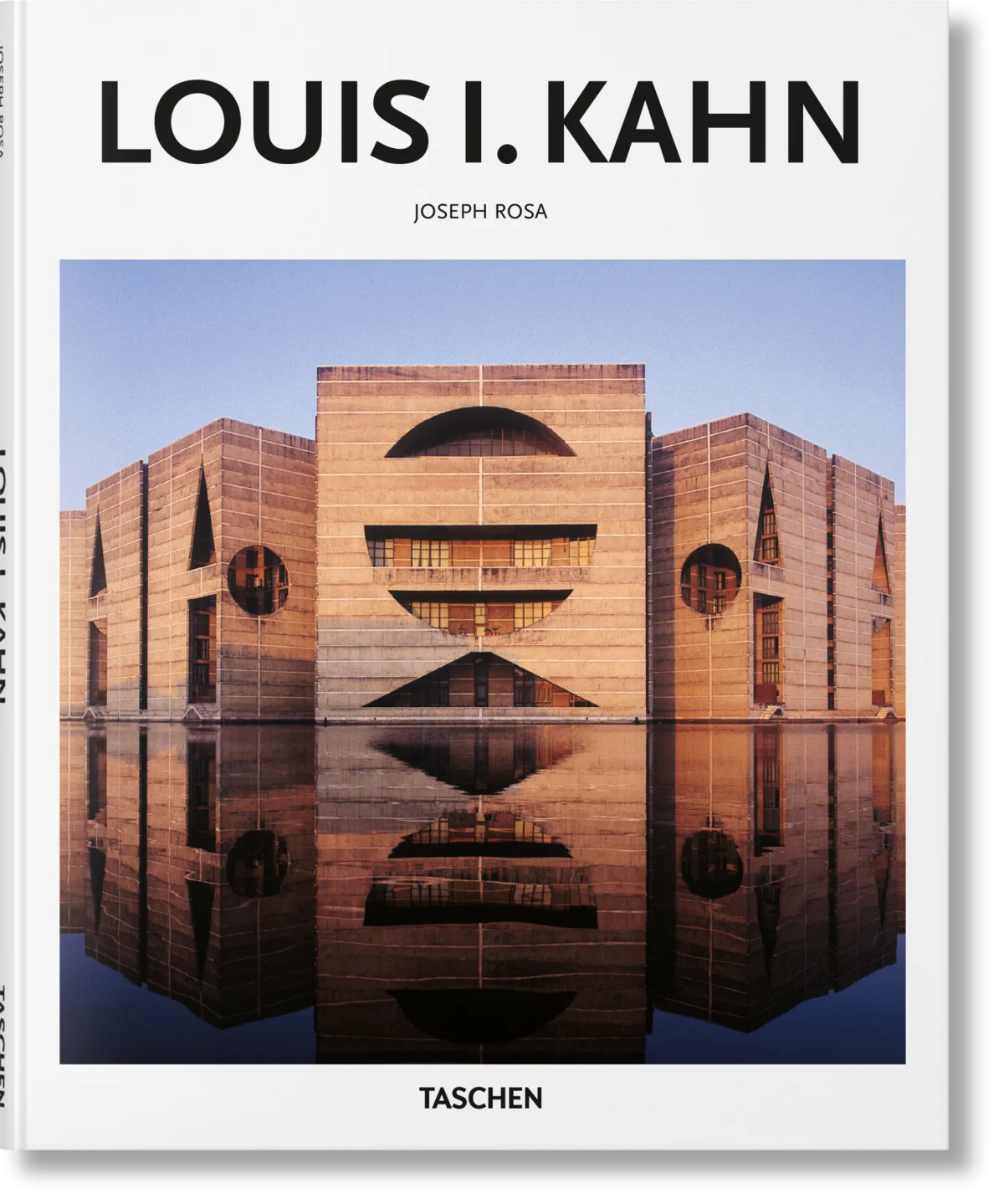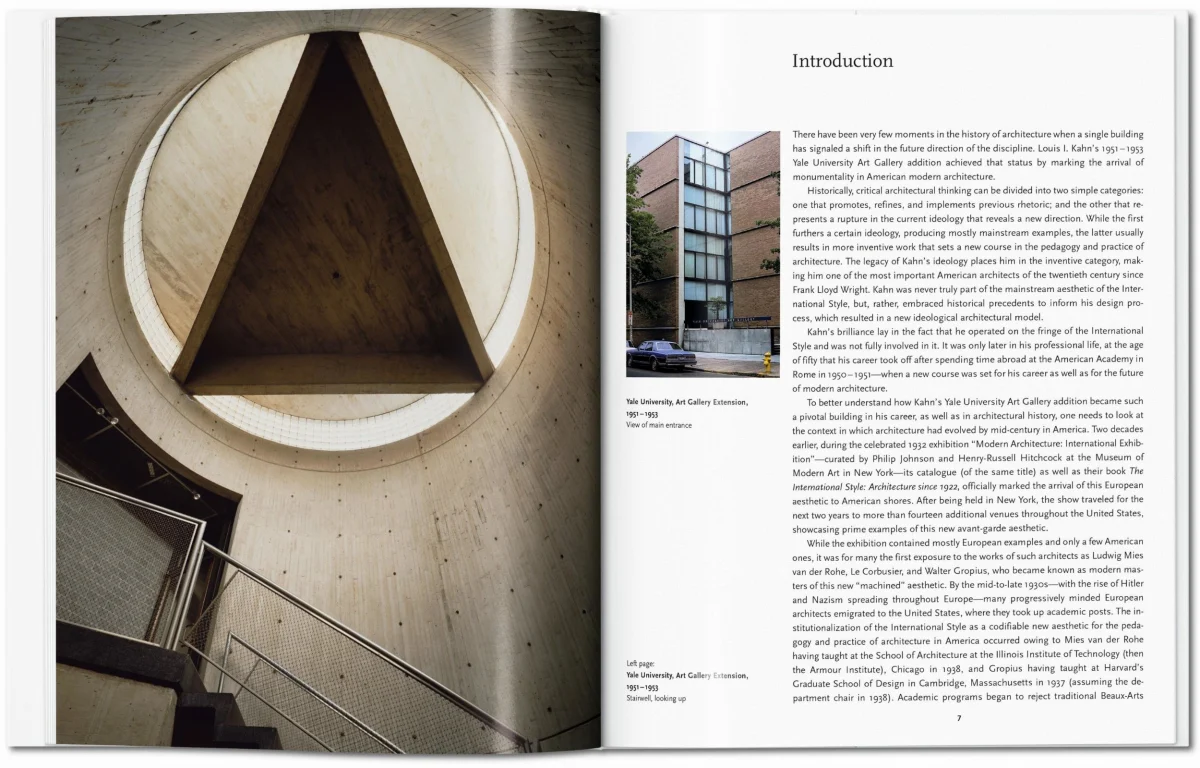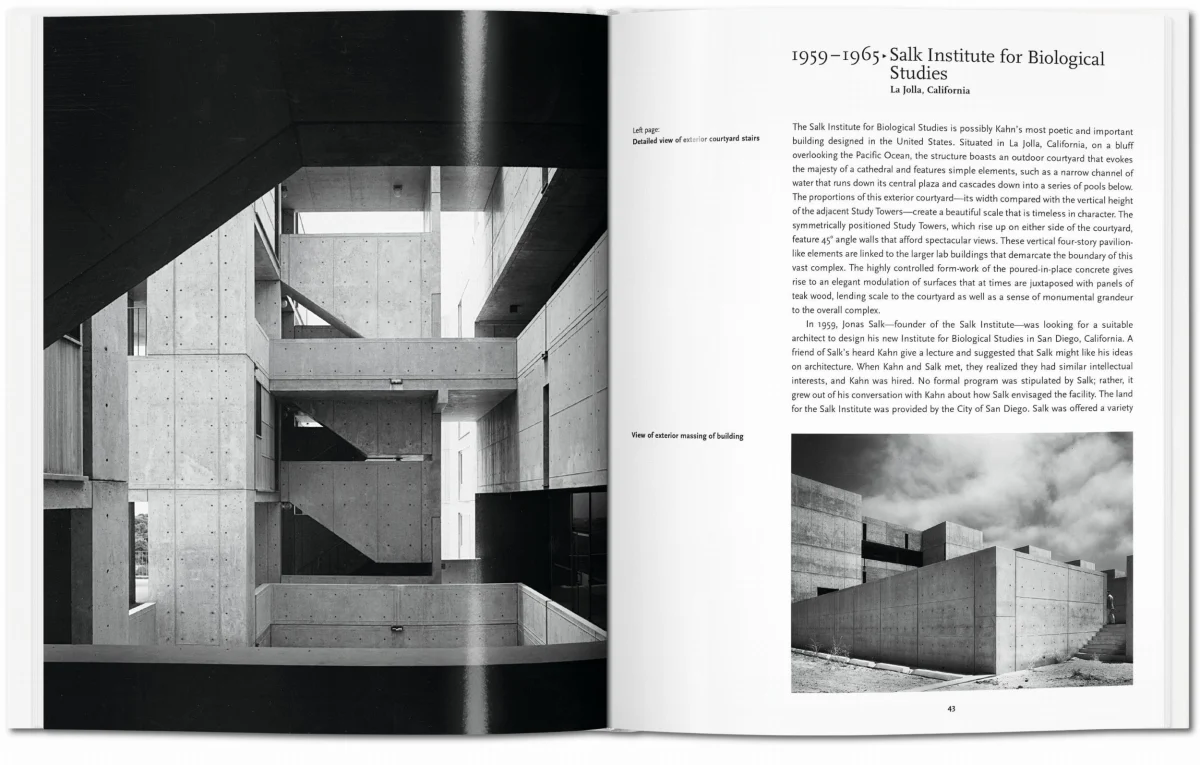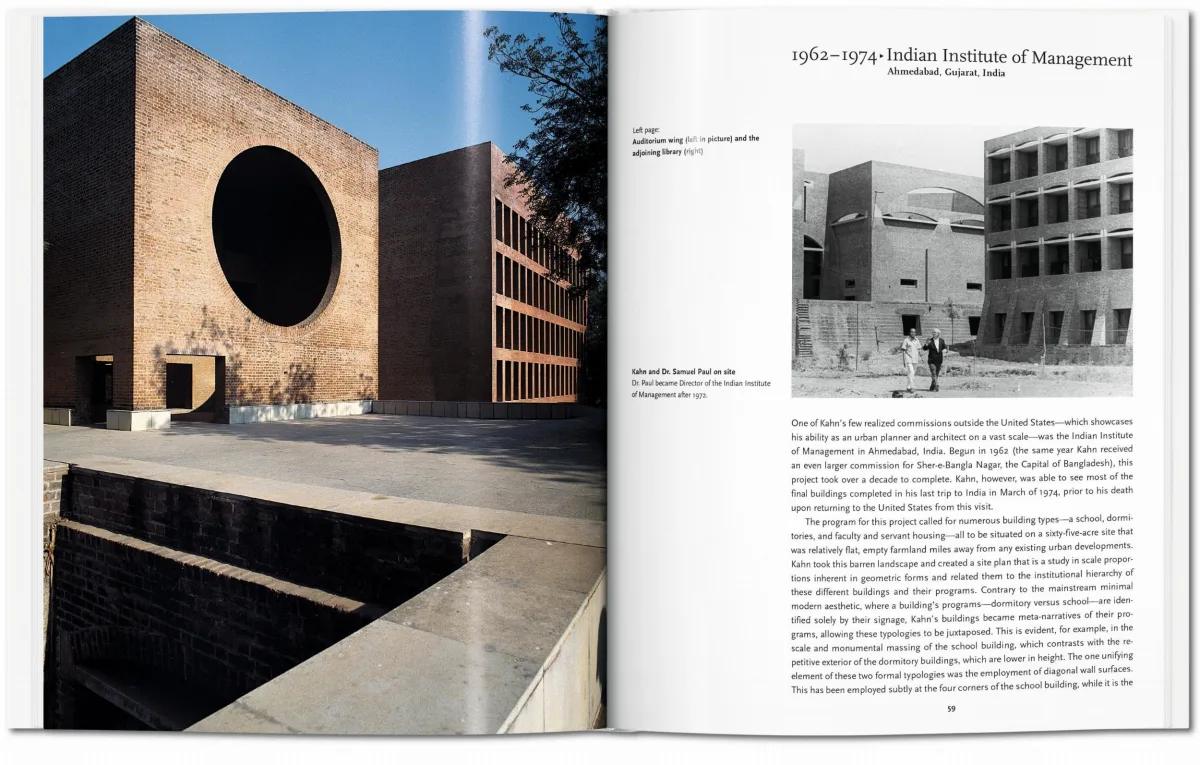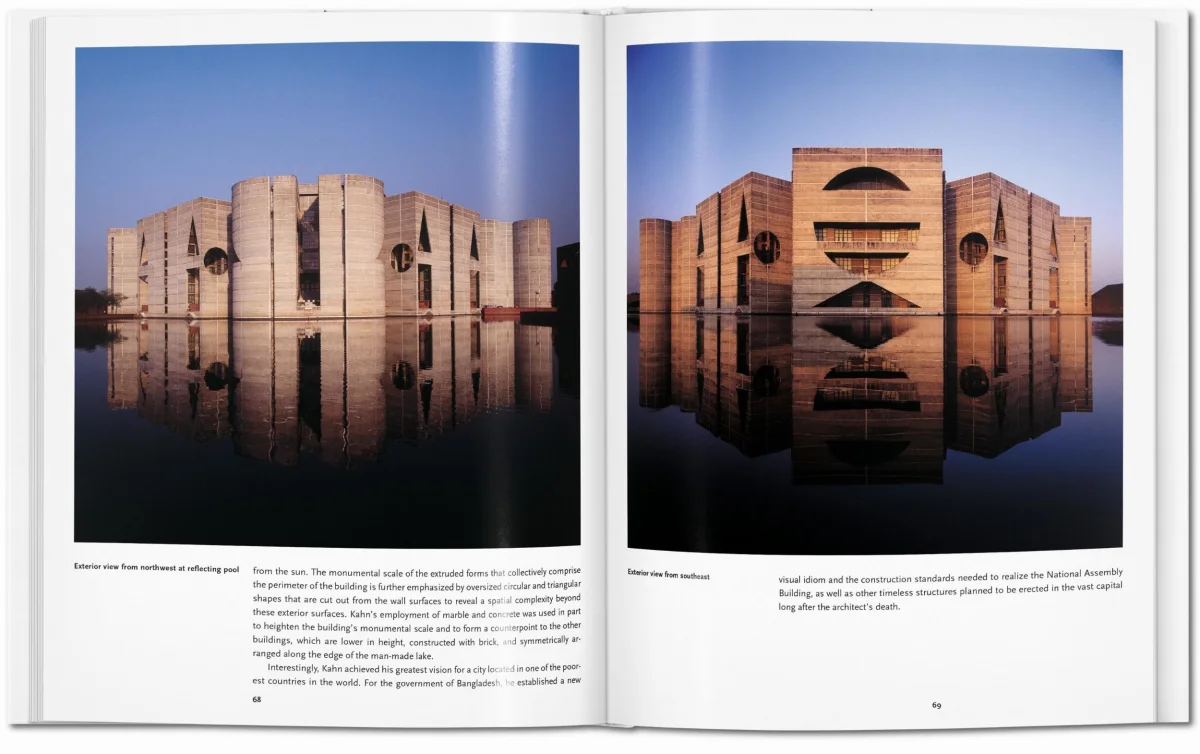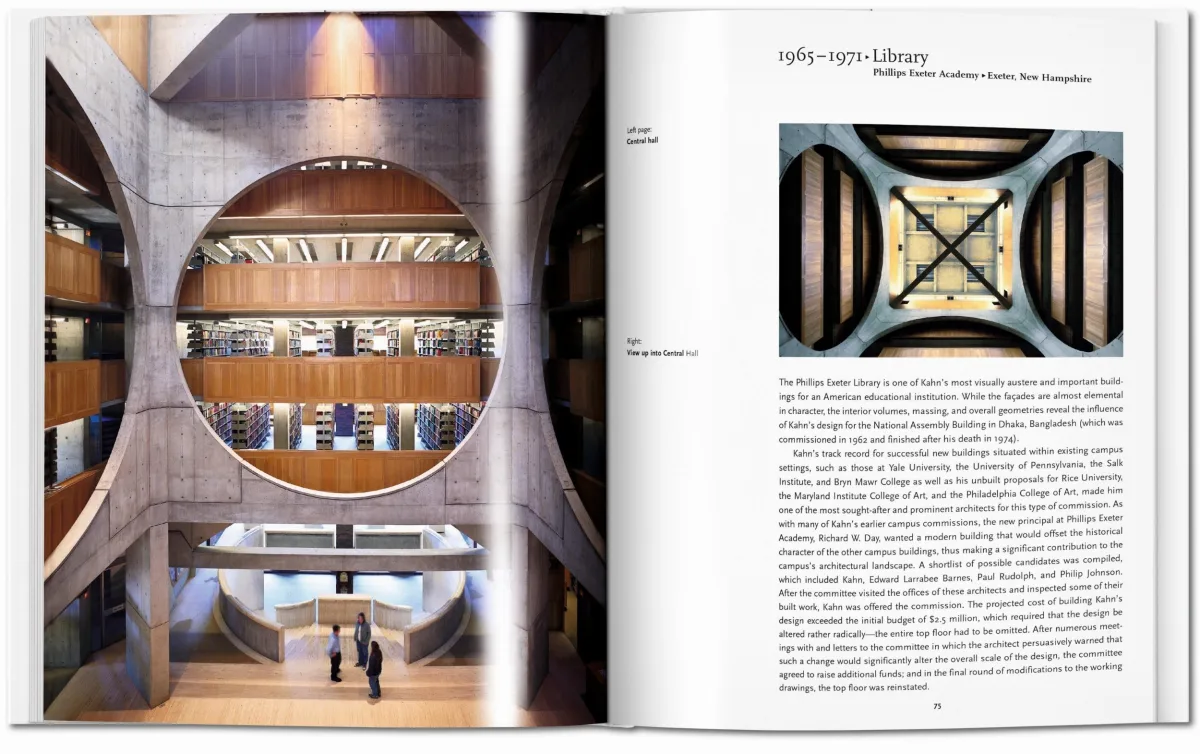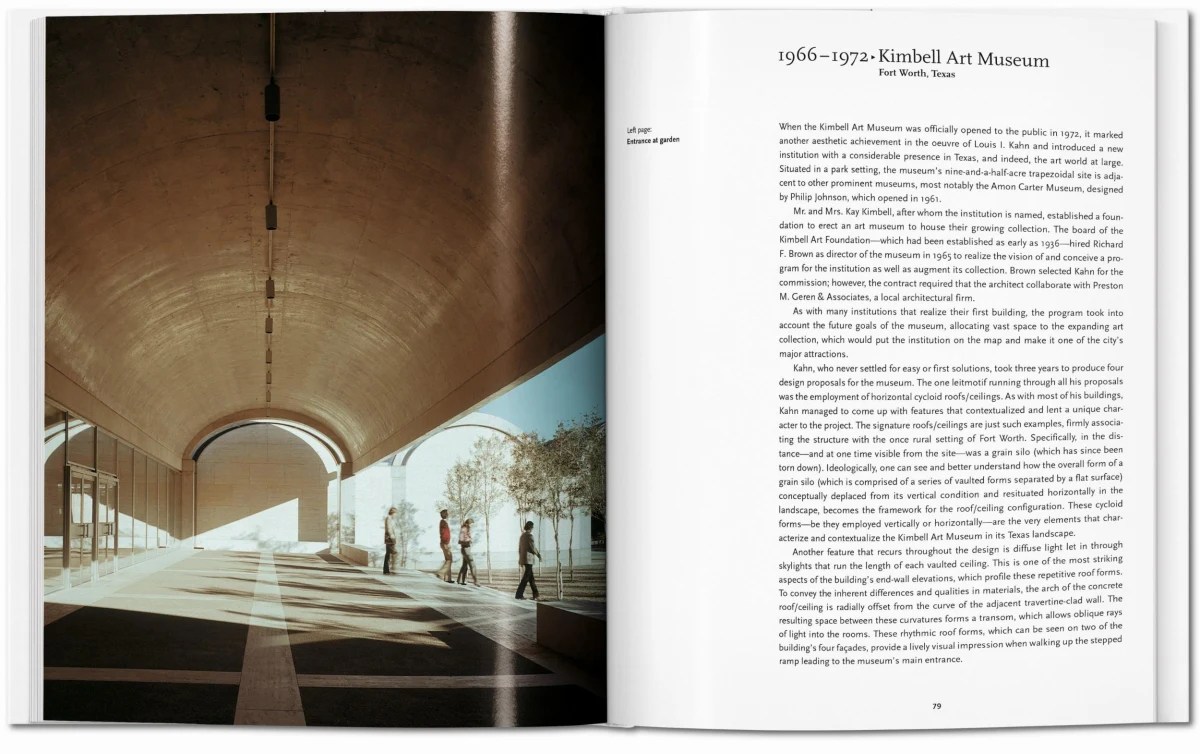Louis I. Kahn
20Edition: EnglishAvailability: In Stock
Louis I. Kahn
20Brilliant Buildings
Louis Isadore Kahn and a luminous modernist language
This essential introduction brings together 17 of Kahn’s most important buildings across his cultural, governmental, religious, and residential repertoire. Plans, views, descriptions, and quality photographs trace the context and development of each project, while an introductory essay explores Kahn’s unique architectural ideology and his legacy as one of the most important 20th-century American architects since Frank Lloyd Wright.
Through Kahn masterworks, such as the National Assembly Building in Dhaka, Bangladesh, or Kimbell Art Museum in Fort Worth, Texas, we’ll explore Kahn’s his “back to basics” grammar inspired by ancient sites in Italy, Greece, and Egypt; and his unique vocabulary of mass, void, and light that suffused the International Style with a near-celestial luminescence.
The author
Joseph Rosa is the Director of the University of Michigan Museum of Art. He is author of numerous publications and has taught at Southern California Institute of Architecture (SCI-Arc), the California College of the Arts, The College of Environmental Design at the University of California in Berkeley, and the Graduate School of Architecture, Planning, and Preservation at Columbia University.
The editor
Peter Gössel runs an agency for museum and exhibition design. He has published TASCHEN monographs on Julius Shulman, R. M. Schindler, John Lautner, and Richard Neutra, as well as several titles in the Basic Architecture series.
Louis I. Kahn
Hardcover, 21 x 26 cm, 0.61 kg, 96 pagesISBN 978-3-8365-4384-2
Edition: EnglishBorn back in 1985, the Basic Art Series has evolved into the best-selling art book collection ever published. Each book in TASCHEN’s Basic Architecture series features:
• an introduction to the life and work of the architect
• the major works in chronological order
• information about the clients, architectural preconditions as well as construction problems and resolutions
• a list of all the selected works and a map indicating the locations of the best and most famous buildings
• approximately 120 illustrations (photographs, sketches, drafts, and plans)
5

